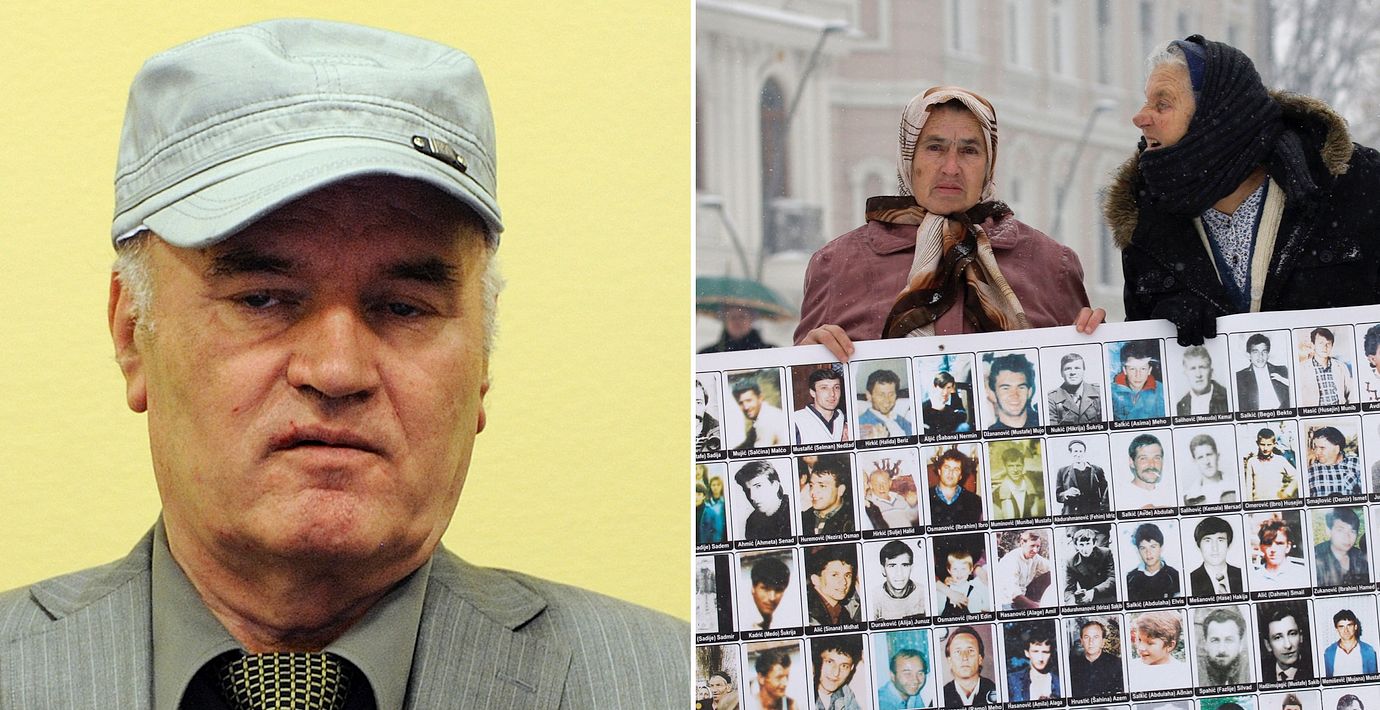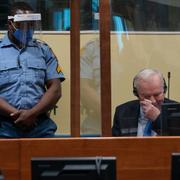
FN yrkar på livstid för ”slaktaren i Sarajevo”
Åklagare i Haag vill att den före detta bosnienserbiske ledaren Ratko Mladic ska dömas till livstids fängelse, rapporterar flera medier.
– Det skulle vara en förolämpning mot offren, levande och döda, och en skymf mot rättvisan att utdöma någonting annat än ett livstidsstraff, säger åklagaren Alan Tieger i Internationella brottsmålsdomstolen för forna Jugoslavien, enligt AP.
Mladic står åtalad för krigsbrott och folkmord för sin ledande roll under kriget i forna Jugoslavien, framförallt under belägringen av Sarajevo och massakern i Srebrenica.
bakgrund
Ratko Mladic
Wikipedia (en)
Ratko Mladić (Serbian Cyrillic: Ратко Младић, pronounced [râtko mlǎːdit͡ɕ]; born 12 March 1943) is a former Bosnian Serb military leader accused of committing war crimes, crimes against humanity and genocide. On 31 May 2011, Mladić was extradited to The Hague, where he was processed at the detention center that holds suspects for the International Criminal Tribunal for the former Yugoslavia (ICTY). His trial formally began in The Hague on 16 May 2012.
A long-time member of the League of Communists of Yugoslavia, Mladić began his career in the Yugoslav People's Army in 1965. He came to prominence in the Yugoslav Wars, initially as a high-ranking officer of the Yugoslav People's Army and subsequently as the Chief of Staff of the Army of Republika Srpska in the Bosnian War of 1992–1995. In 1995, he was indicted by the International Criminal Tribunal for the former Yugoslavia (ICTY) for genocide, war crimes and crimes against humanity. As the top military general with command responsibility, Mladić was accused by the ICTY of being responsible for the Siege of Sarajevo (5 April 1992 to 29 February 1996) and the Srebrenica massacre—the largest mass murder in Europe since the immediate aftermath of World War II. He has often been referred to by international media as the Butcher of Bosnia, a title also sometimes applied to Radovan Karadžić, the former President of Republika Srpska.
In July 1996 the Trial Chamber of the ICTY, proceeding in the absence of Mladić under the ICTY's Rule 61, confirmed all counts of the original indictments, finding there were reasonable grounds to believe he had committed the alleged crimes, and issued an international arrest warrant. The Serbian and United States governments offered €5 million for information leading to Mladić's capture and arrest. In October 2010, Serbia intensified the hunt by increasing the reward for Mladić's capture from €5 million to €10 million. Mladić nevertheless managed to remain at large for nearly sixteen years, initially sheltered by Serbian and Bosnian Serb security forces and later by family. On 26 May 2011, he was arrested in Lazarevo, Serbia. His capture was considered to be one of the pre-conditions for Serbia being awarded candidate status for European Union membership.
Omni är politiskt obundna och oberoende. Vi strävar efter att ge fler perspektiv på nyheterna. Har du frågor eller synpunkter kring vår rapportering? Kontakta redaktionen



